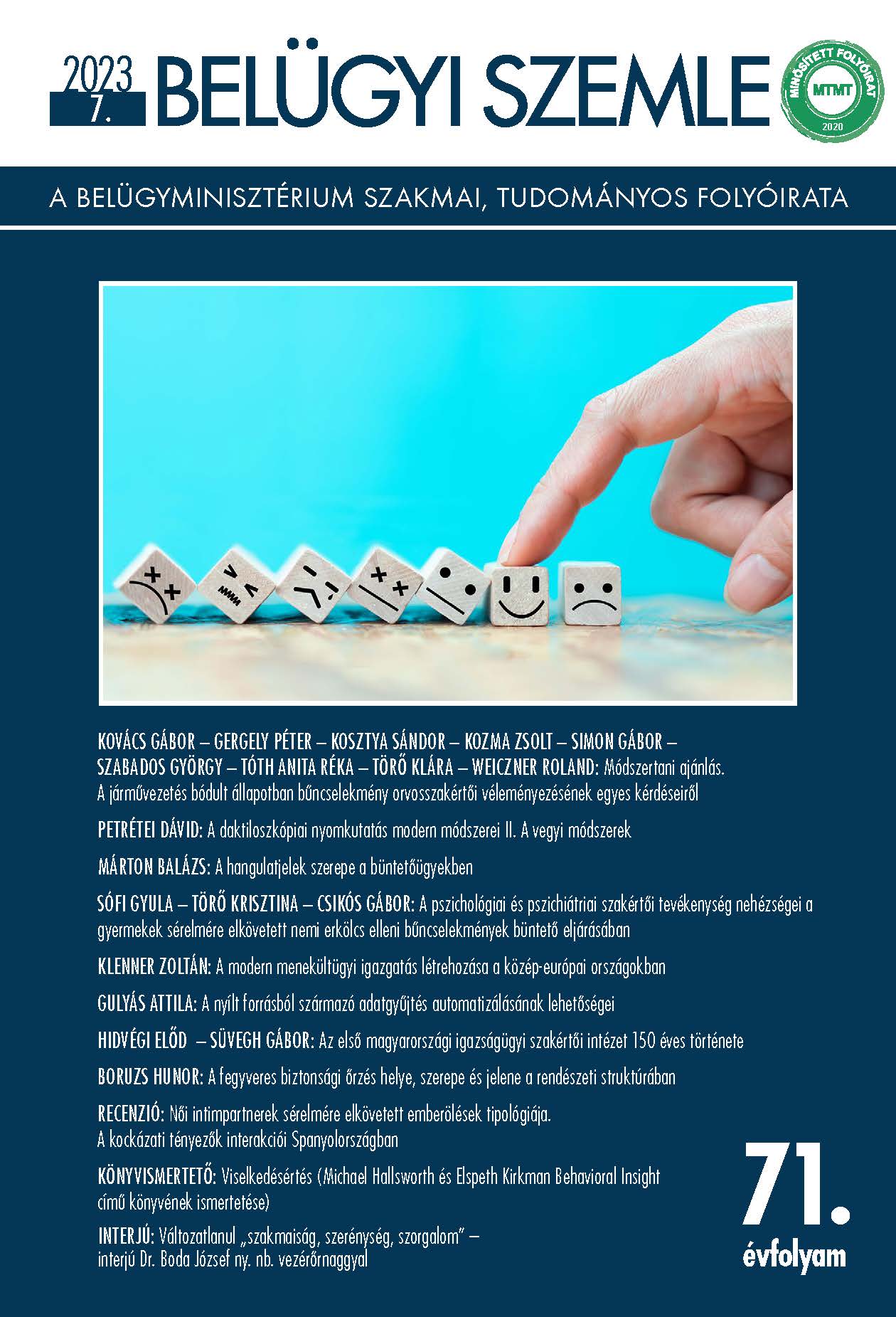Abstract
Aim: Besides defining the concept of emoticons used in Internet-based communication, the aim of this study is to examine the criminal procedural relevance of emoticons in certain crime cases and their legal assessment by the judiciary.
Methodology: The methodology applied is the overview of foreign scientific literature on the legal aspects of emoticons, the review of the relevant parts of the effective Hungarian law on criminal procedure and other legislation applicable during the criminal procedure, furthermore analysis of court cases.
Findings: Based on the findings of foreign scientific literature, the clear trend is the ever wider spread of the use of emoticons, therefore the increase in the number of crime cases where case-specific legal assessment of emoticons is necessary. According to the Hungarian law on criminal procedure, it may need to be appoint a forensic expert to evaluate emoticons. However, experiences of the crime cases examined hereby shows that neither the prosecution nor the defense requested it, and the court did not consider it necessary to appoint an expert in order to examine the meaning of emoticons in a given communication. According to the nearest judicial interpretation from 2018, the meaning of emoticons is so unclear that they are not suitable for proving the seriousness of the intention.
Value: This study examines the meaning and categorization of emoticons and their potential importance in crime cases. It overviews those provisions of the Hungarian law on criminal procedure which may be relevant when assessing the use of emoticons. Finally, the study gives an analysis through court cases on the current approach to emoticons by the Hungarian judiciary.

